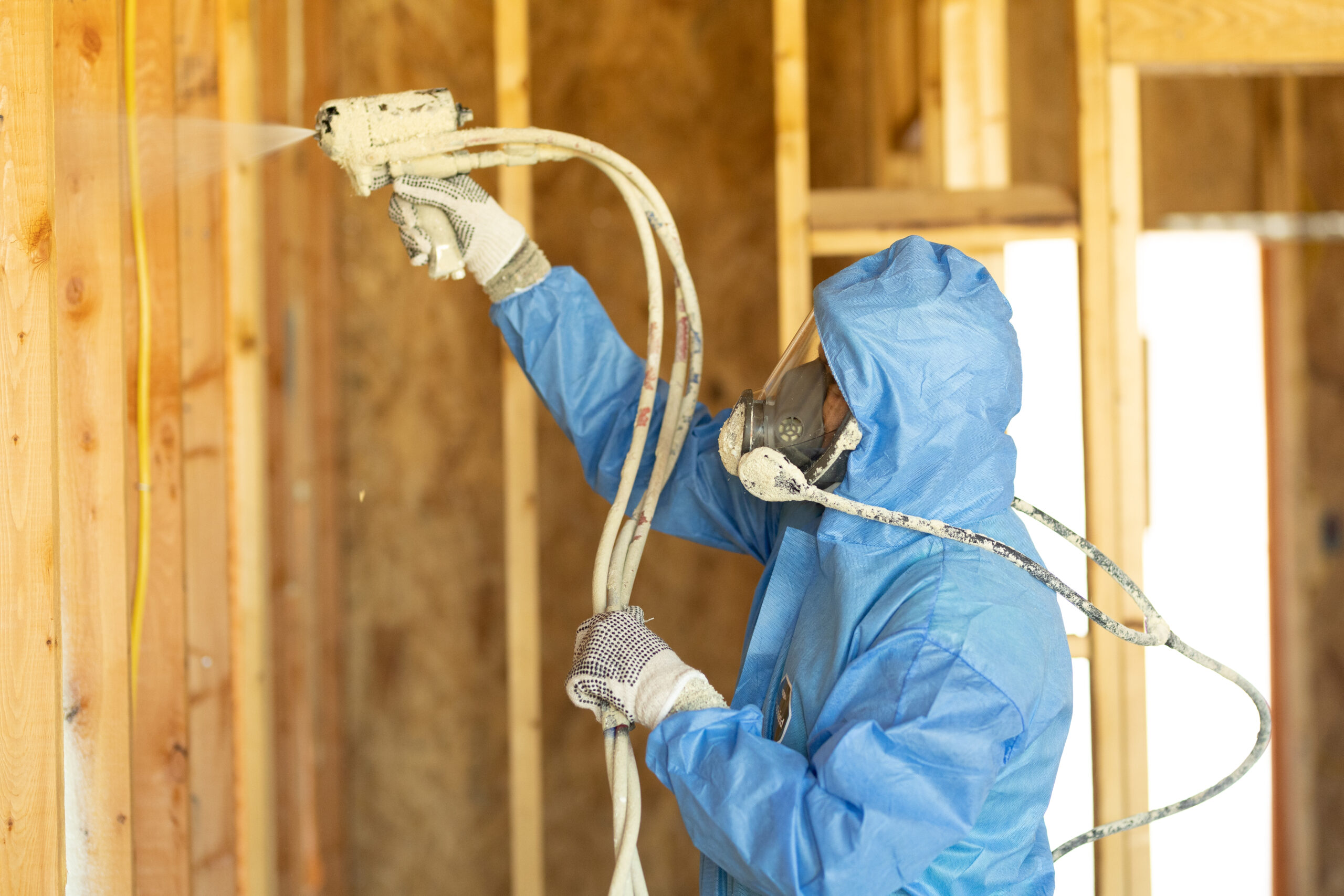Spray Foam: The Ultimate Remedy for Air Sealing and Insulation
Spray foam insulation has actually arised as a leading solution for effective air sealing and thermal insulation, providing a distinct combination of residential properties that establish it apart from typical techniques. Comprehending the full extent of its benefits, installment procedures, and comparisons with various other insulation kinds is important for making educated decisions.
What Is Spray Foam?
Spray foam is a flexible insulation material that integrates the concepts of air securing and thermal resistance to boost energy performance in buildings. Made up largely of polyurethane or other comparable substances, spray foam is applied as a fluid that increases upon call with surface areas, creating a strong, continuous layer of insulation. This one-of-a-kind residential or commercial property allows it to load gaps, splits, and spaces that standard insulation products might overlook, supplying a remarkable air seal.
There are 2 major types of spray foam: open-cell and closed-cell. Open-cell spray foam is lighter and a lot more versatile, supplying superb sound absorption and a lower R-value per inch - Spray Foam. In contrast, closed-cell spray foam is denser, providing a higher R-value, moisture resistance, and added architectural integrity to developing parts
The application procedure normally involves specific equipment, making certain a smooth application that complies with various substratums, including metal, concrete, and timber. This adaptability makes spray foam appropriate for both brand-new constructions and retrofitting existing structures. Its ability to develop an impermeable obstacle substantially adds to minimizing power intake and boosting interior air high quality, thus making it a preferred choice amongst builders and house owners alike.
Benefits of Spray Foam Insulation
Among one of the most considerable benefits of spray foam insulation is its outstanding capacity to produce a continuous air obstacle, which properly lessens power loss. Unlike standard insulation products, spray foam expands to load splits and spaces, making certain that air leak is drastically minimized. This particular not just improves energy efficiency however also brings about lower energy bills over time.
In addition, spray foam insulation gives superior thermal resistance, adding to a more secure indoor environment. Its high R-value per inch permits effective insulation in constrained spaces, making it perfect for attic rooms, walls, and crawl areas. The moisture-resistant residential or commercial properties of spray foam assistance stop mold and mildew and mold development, promoting much healthier living problems.
An additional essential advantage of spray foam insulation is its sound-dampening qualities (Spray Foam). It properly lowers noise transmission in between areas, developing a quieter and a lot more comfortable home setting. The toughness of spray foam additionally stands out, as it does not droop or settle gradually, preserving its performance throughout its life-span
How Spray Foam Functions
Comprehending how spray foam insulation functions is necessary for valuing its performance in air sealing and thermal resistance. Spray foam insulation contains two primary components: isocyanate and polyol material. When these parts are combined, they undertake a chain reaction that creates the product to increase rapidly, developing a dense foam that loads spaces, dental caries, and cracks.
As the foam expands, it sticks to surfaces, developing an useful reference airtight seal that considerably decreases air seepage. This characteristic makes spray foam insulation extremely reliable at avoiding drafts and wetness penetration, which can lead to energy loss and damages over time. Furthermore, the closed-cell version of spray foam uses exceptional thermal resistance as a result of its stiff structure, successfully decreasing warmth transfer.
The one-of-a-kind properties of spray foam allow it to satisfy more information uneven surfaces, making certain detailed coverage and a smooth barrier. Consequently, spray foam insulation not only improves energy performance yet additionally adds to improved interior air top quality by decreasing the accumulation of allergens and contaminants. Ultimately, understanding the technicians behind spray foam underscores its function as a remarkable selection for insulation and air sealing in both domestic and industrial applications.
Installment Process Review

Prior to installment, the space must be effectively cleansed and prepped, guaranteeing that surfaces are devoid of debris, dust, and dampness. Since continue reading this pollutants can compromise attachment and general efficiency, this action is important. As soon as the location is prepared, the application involves blending both components of the spray foam, which increases upon call and fills up gaps effectively.
Trained specialists ought to carry out the installment, using specialized equipment to make certain uniform protection and optimal density. Safety and security precautions, consisting of wearing protective equipment and ensuring proper ventilation, are critical throughout this process. After application, the foam usually remedies rapidly, creating a solid obstacle that enhances power performance.
Contrasting Spray Foam to Standard Insulation
When evaluating insulation options, spray foam insulation stands apart in comparison to typical products such as fiberglass and cellulose. One of the primary advantages of spray foam is its superior air securing capacities. Unlike fiberglass and cellulose, which can permit air seepage, spray foam broadens upon application, filling up voids and holes to produce an airtight seal. This leads to improved power performance, as much less warmed or cooled air escapes the home, causing lower energy expenses.
Furthermore, spray foam gives a higher R-value per inch than standard insulation types, supplying even more effective thermal resistance in a thinner account. This characteristic is especially beneficial precede with limited tooth cavity depth. Moreover, spray foam is immune to moisture and mold and mildew development, which can be a substantial worry about cellulose and fiberglass, particularly in damp environments.
Nonetheless, spray foam insulation generally brings a greater upfront price than its typical counterparts. Home owners must weigh this first investment versus long-lasting energy savings and performance benefits. Ultimately, while both insulation kinds serve their objective, spray foam becomes a much more advanced solution for modern-day insulation needs, specifically in regards to air sealing and thermal efficiency.

Verdict
In summary, spray foam insulation represents a very reliable service for accomplishing optimal air securing and thermal resistance. Its special residential properties, including dampness resistance and sound dampening, make it ideal for numerous applications in both new constructions and retrofitting jobs (Spray Foam). The first costs might be greater contrasted to typical insulation materials, the long-term benefits, such as substantial energy savings and enhanced interior air high quality, validate the financial investment and highlight its value in modern structure methods.
Spray foam insulation has actually emerged as a leading service for effective air sealing and thermal insulation, supplying a distinct mix of homes that set it apart from traditional methods.Spray foam is a functional insulation product that incorporates the principles of air sealing and thermal resistance to enhance power performance in buildings.When evaluating insulation choices, spray foam insulation stands out in comparison to standard materials such as fiberglass and cellulose. Eventually, while both insulation kinds offer their objective, spray foam arises as a much more sophisticated remedy for contemporary insulation demands, specifically in terms of air securing and thermal efficiency.
In recap, spray foam insulation stands for a highly effective solution for achieving optimum air sealing and thermal resistance.